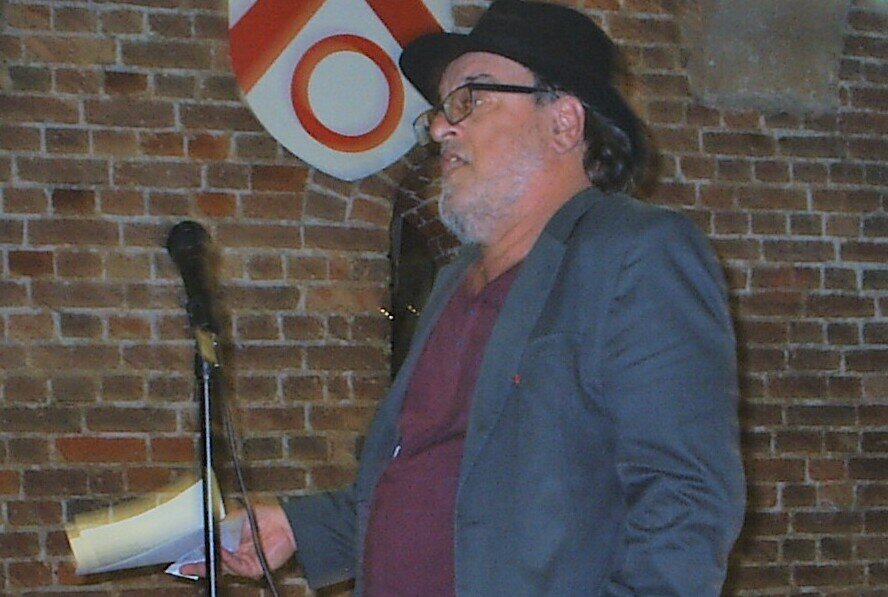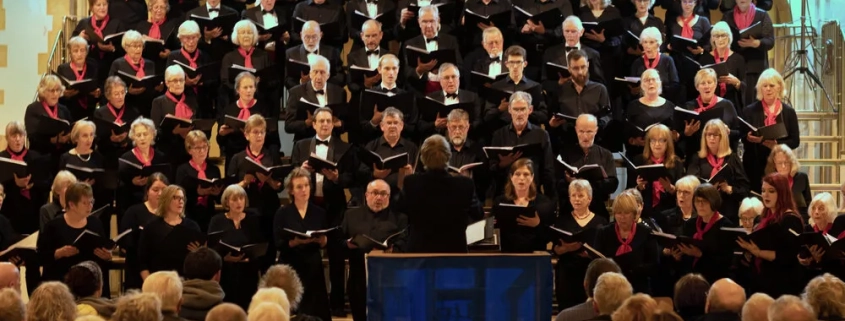PORTSMOUTH CHORAL UNION & THE RENNAISANCE CHOIR
Performing Vespers, October 2022
The recording of the Rachmaninov Vespers by Alexander Sveshnikov and the State Academic Russian Choir, from 1965, is described as ‘bone-chilling’ by one reviewer. It isn’t taken from the shelves to be played as much as it might, some Mozart sonatas or Bach usually providing not quite such intense company. As with Schoenberg’s Gurrelieder, there are safer options and, anyway, what chance does a CD have against the real, visceral experience of hearing it live?
Having once been all the way to Handel’s house in Mayfair to hear Biber’s Passacaglia in the flesh because I wasn’t sure when I’d get any other chance, even the combined forces of the Portsmoth Choral Union and the Renaissance Choir giving this had long been a top priority in the diary.

The reputation of Rachmaninov (left) would be safe enough in posterity for his piano music but the Vespers go into entirely another dimension. These excellent but local choirs are not afraid of much but it was nevertheless brave of them to take this music on.

One afternoon in the 1990’s the Vespers came on the radio and I looked out at dark clouds scudding across a November sky, which fitted very well the evocation of lost souls in the vast wilderness of Russia and the universe beyond. The mundanity of the work I was ostensibly being paid to do lost any meaning it was meant to have. So, how were the joint forces of Porstmouth Choral Union and the Renaissance Choir going to match this challenge?
After the Call to Prayer and Bless the Lord, O my soul it was clearly going to be ‘with great panache’. Music can cause an authentic physical reaction, the genuine tingle and thrill that feels like one’s hair is standing on end, whether it actually is or not.
It doesn’t happen to me very often, but it immediately did here, with special reference to the other-worldly solo by Melissa Wingfield.. For me there is a powerful disjunction between the abandoned, abject emotion in the music and the text which is confident in its devotions. One couldn’t help but draw parallels between continuing news reports from east of here, if not anywhere closer, and any available solace that there is to be had, among which art and music as profound as this is a significant part.
In the Evening Hymn of Light there was some respite and the glorious tenor of Jon English soared above the slow pulse of the sopranos in the Song of Simeon before the full force of the choir briefly created a cathedral of sound. There were times to be reminded of Spem in Alium, plainchant, those albums of Le Mystere de Voix Bulgares or James MacMillan but perhaps this is music in a category of its own. The choir provided ebb and flow like the ocean of sound in the Tallis, but the surges of power like that at, i blagosloven Plod chreva Tvoyego from the tenors were crashing waves.

David Green, (left) who does so much good work in profiling music in Portsmouth through a network of print and electronic media outlets completed his report with reference to one or two individuals who had made significant contributions to what sounds like a wonderful evening.
Otche Nash, the Lord’s Prayer, by Anton Arensky was inserted as an acknowledgement of Rachmaninov’s teacher but also of the fact that this music is often given with other appropriate items in more extended services. It hadn’t occurred to me before that singers are in a way athletes and benefit from Jon providing a tenor solo before the rhythmic Glory to God in the highest, the chill wind that still seemed to sound through the road to salvation and the rousing, celebratory energy of the Hymn to the Virgin.
Gladly, at the conclusion Peter Gambie let it hang in the air for some moments rather than rush to the uproar of a Beethoven or Dudamel finish. I don’t think anybody was interested in the flamboyant.
Wow. Apart from absolutely everybody who was involved in this thankfully well-attended performance, special credit is due to David Gostick who rehearsed his PCU powerhouse contingent as an essential contribution to Peter Gambie’s direction whose privilege, as he said, that was.




Leave a Reply
Want to join the discussion?Feel free to contribute!